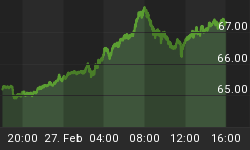To almost no one’s surprise, the latest data drama concerns hyper-popular TikTok, which a new report says is the worst offender in the privacy space, collecting its users personal information and sharing it with … everyone and anyone.
A new study by mobile marketing company URL Genius says that TikTok, owned by Chinese tech giant ByteDance, and Google-owned YouTube, collect more personal data from their users than any other popular social media network.
The study notes that YouTube primarily collects users’ personal data, such as search history and geographic location, for its own purposes. But TikTok is another case entirely.
The study found that TikTok allows third-party trackers to collect its user data, and from there, it’s difficult to know where it ends up.
In fact, it is impossible to know where users’ personal information is transmitted and to what end. “Consumers are currently unable to see what data is shared with third-party networks, or how their data will be used,” the paper said.
The study noted that third-party trackers can track activity of the users on other sites even after they leave the app.
Last year, TikTok had approximately 120.8 million active users in the United States, mostly ages 10 to 29; but not exclusively: Some 11% of the U.S. TikTok user base is over the age of 50.
TikTok has been the subject of criticism in many countries in the past over how the company collects and uses data. In 2020, then-president Donald Trump threatened to ban the app from operating in the U.S., citing national security concerns. He even ordered that Tik-Tok must either sell its U.S. operations to American companies or be barred from the country. However, he failed to get any support for it, including from federal judges.
Once taking the office, current President Joe Biden signed an executive order revoking a Trump-era order aimed at banning TikTok and ordered a review of potential security threats posed by foreign-owned apps.
However, the Biden administration is now moving to revise federal rules to address potential security risks from foreign-owned apps. The US Commerce Department is now considering a rule change that could increase restrictions on foreign-owned apps and expand federal oversight over data-sharing.
Elsewhere, early last year, India banned 59 Chinese apps permanently, with Tik-Tok included, after they failed to satisfy the government’s requirements related to compliance and privacy.
Last September, the European Union launched two probes after concerns were expressed over the company's use of minors' personal information.
One investigation is looking into the question due to data transfers to China, while another is focusing on the collection and handling of the personal data of children.
Pakistan and Indonesia have banned the app for short periods of time–Pakistan on grounds of “immoral” videos, and Indonesia because the app censored content critical of China.
Meanwhile, in Russia, the government has ordered Tik-tok to remove videos critical of the government and demonstrating support for opposition leader Aleksei Navalny. Russian regulators fined Tik-Tok a symbolic $34,000 for appealing to minors urging them to join political demonstrations.
















